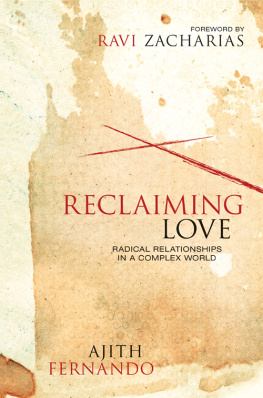London School of Economics
Monographs on Social Anthropology
No 62
FernandoSantos-Granero
The Power of Love:
The Moral Use of Knowledge amongst the Amuesha of Central Peru
London School of Economics Monographs on Social Anthropology
Managing Editor: Peter Loizos
The Monographs on Social Anthropology were established in 1940 and aim to publish results of modern anthropological research of primary interest to specialists.
The continuation of the series was made possible by a grant in aid from the Wenner-Gren Foundation for Anthropological Research, and, more recendy, by a further grant from the Governors of the London School of Economics and Political Science. Income from sales is returned to a revolving fund to assist further publications.
The Monographs are under the direction of an Editorial Board associated with the Department of Anthropology of the London School of Economics and Political Science.
First published 1991 by Bloomsbury Acadmic
Published 2020 by Routledge
2 Park Square, Milton Park, Abingdon, Oxon OX14 4RN
605 Third Avenue, New York, NY 10017
Routledge is an imprint of the Taylor & Francis Group, an informa business
Copyright Fernado Santos-Granero 1991
All rights reserved. No part of this book may be reprinted or reproduced or utilised in any form or by any electronic, mechanical, or other means, now known or hereafter invented, including photocopying and recording, or in any information storage or retrieval system, without permission in writing from the publishers.
Notice:
Product or corporate names may be trademarks or registered trademarks, and are used only for identification and explanation without intent to infringe.
British Library Cataloguing in Publication Data
Santos-Granero, Fernando
The Power of love: the moral use of knowledge among the Amuesha of Peru.
(London School of Economics Monographs on Social Anthropology,
ISSN 0077-1074; 62).
1. Amuesha. Tribal societies. Cultural processes
I. Title II. Series
305.8
ISBN 0-485-19562-3
Library of Congress Cataloging-in-Publication Data
Santos-Granero, Fernando, 1955
The power of love: the moral use of knowledge amongst the Amuesha of
central Peru/Fernando Santos-Granero.
p. cm. (Monographs on Social Anthropology; no. 62)
Originally presented as the author's thesis (Ph.D) London School of
Economics.
Includes bibliographical references and index.
ISBN 0-485-19562-3
1. Amuesha Indians Religion and mythology. 2. Amuesha Indians
Philosophy. 3. Oral tradition Peru. 4. Shamanism Peru. 5. Social status
Peru. I. Title. II. Series.
F3430.1.A54S26 1990
299'.883dc20
ISBN13: 978-0-4851-9562-0 (hbk)
Typeset by J&L Composition Ltd. Filey, North Yorkshire
| Maps |
| Diagrams |
| Charts |
| Figures |
In the years since I began my PhD studies in the Department of Social Anthropology at the London School of Economics, I have become gready indebted to many persons and institutions without whose support - moral, academic and financial - this work would never have been completed. I would, first, like to thank the LSE, which provided me with a Graduate Studentship during all the time I was registered there as an MPhil/PhD student. Special thanks are due to Mrs D. Rogerson, the Scholarships Officer, who patiendy listened to my frequent financial problems and invariably found a solution to them. I also want to express my gratitude to the Central Research Fund of the University of London, which awarded me two grants towards field materials and travel expenses, and especially to Mrs L. J. West, who had the patience to put up with my constant mistakes in filling out the application forms. I could not have carried out my fieldwork if it were not for the financial support of the Wenner-Gren Foundation for Anthropological Research. My thanks to them and to Mrs L. Osmundsen, Director of Research, for her invaluable advice. In the process of writing up my PhD thesis I also benefited from grants from both the Malinowski Memorial Research Fund of the LSE and the Radcliffe-Brown Memorial Fund of the Royal Anthropological Institute. I wish to thank these institutions and especially Mr j. Benthall, Director of the RAI, for their support.
I am greatly indebted to Professor loan M. Lewis, who was my supervisor when I first arrived at the LSE as an MSc student, and who encouraged me to follow PhD studies. Without his kind support and academic advice I would not have been able to withstand the exacting demands of the PhD course. But if this thesis has reached its conclusion it is due to the intellectual and moral support that I received from Dr Joanna Overing as my thesis supervisor and, above all, as a friend. Her great knowledge of the Amazonian literature, her innovative and provocative insights into Amerindian thought and social organisation, and her multidisciplinary interests have had a great influence on me. She has encouraged me throughout the process of writing this thesis - when at times it seemed that nothing made sense - and for that I am most grateful.
While in Peru I benefited from my association with the Pontificia Universidad Catlica del Per, where I did my first degrees in Anthoropology. I wish to thank Dr M. Marzal, Dr J. Ossio and Alejandro Camino - who introduced me to the study of Amerindian societies - for their kind support. I would also like to thank Dr J. Regan, the Director of the Centro Amaznico de Antropologa y Aplicacin Prctica, to which I was academically affiliated during my stay in Peru. He gave me his personal and institutional support both while in Lima and in the field.
Dr Richard Smith, who lived thirteen years amongst the Amuesha and whom I met as an undergraduate student doing fieldwork for the first time, introduced me to the magic universe of Amuesha life. Since then he has continued to exert his influence on me even from afar and without his knowledge. For that I am most indebted. I also wish to thank Frederica Barclay, my colleague, best friend and co-fieldworker, with whom I embarked upon many an intellectual and field adventure during my first stay amongst the Amuesha. This work is also hers. Roy Gordon had the patience to read my whole thesis from beginning to end in order to introduce some sense into my English grammar and spelling, and I thank him very much for it. If he was not totally successful this should not be imputed to his lack of skill, but to the impossibility of rewriting a whole thesis.
I have known the Amuesha since 1977. During all these years I have frequently benefited from their unfaltering hospitality, friendship and generosity. I have shared the same roof and food with many Amuesha families. As it would be unfair to mention some while omitting others I wish to thank them all for allowing me to share their lives in spite of my social clumsiness and my ignorance of the most elementary forest knowledge. I must, however, thank Yurich Francisco and Pedro Antonio for their friendship and for the extreme patience with which they introduced me into the labyrinth of Amuesha mythology. Without their assistance I would not have been able to see my way out. I only hope that this work will do justice to their efforts, and that those who read it will appreciate the philosophy of a people who not only talk of love, but have made love the cornerstone of their social life.















